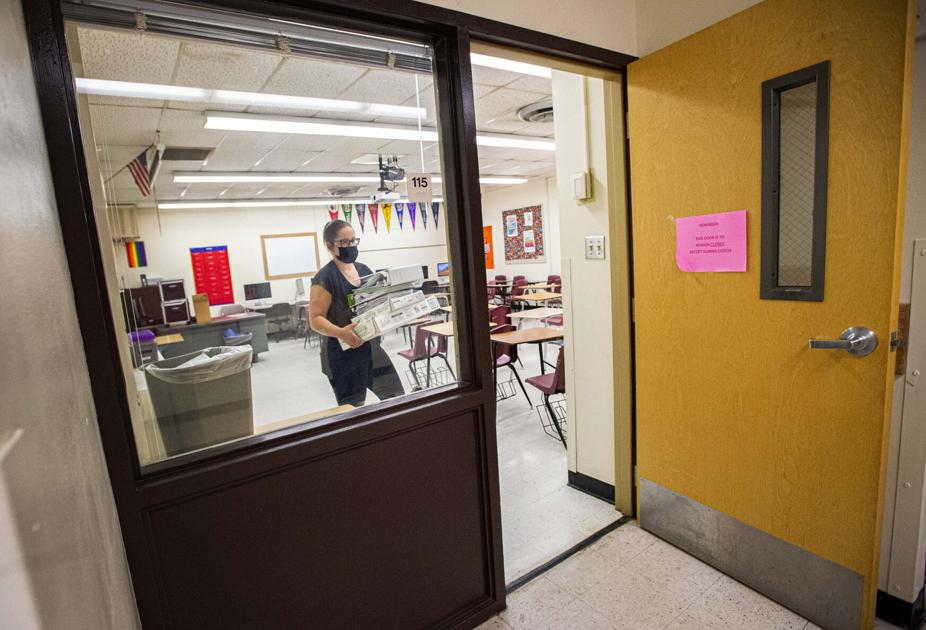Troubling new school data released Thursday by the state Education Department confirms what educators and policymakers had suspected — and what parents knew all along: Student achievement took a nosedive during COVID.
As The Gazette reported, classroom disruptions in response to the pandemic caused significant learning losses and cut achievement from 2019 to this year. The losses were evident across all grades and subjects.
Colorado Education Commissioner Katy Anthes announced that the “sobering data … confirm just how hard last year was with school closures, class quarantines and remote learning.” The data came from scores on Colorado Measures of Academic Success tests as well as PSAT and SAT exams administered to students statewide last spring.
This week, an Education Department official forewarned the media of the disappointing test scores with news that math performance on last spring’s testing had been particularly poor — and in some grades was the worst ever. Only 28.5% of fourth graders met or exceeded expectations statewide in math; that’s the lowest performance since the assessments began, the official said. Less than one-quarter of sixth graders statewide — 24.1% — met or exceeded performance expectations in math. Math skills are thought to have been hit especially hard because of the subject’s sequential nature, with concepts building on one another. That requires more direct interaction with teachers.
Of course, direct interaction with teachers was in short supply across Colorado for the 2020-21 school year. Education officials also cited other remote-learning-related factors behind Colorado kids’ abysmal performance on last spring’s tests. Lower-income households lacked access to electronic devices and internet connectivity. Some kids didn’t have the personal space needed to do schoolwork at home. Many children have parents whose jobs didn’t allow them to work at home during the pandemic and especially during the spring-into-summer 2020 lockdown. They couldn’t supervise their kids to ensure their engagement with online learning.
All of which amounts to an indictment of our state’s crash course in remote learning — to no one’s surprise. Just about everyone had at least a hunch it wasn’t going to work.
That’s not in any way to say online learning can’t work. It can be highly effective and has proven a success in the right circumstances. Foremost, when parents actually choose such a program for their kids because it’s the best match with their learning style.
That’s a decision typically made in the absence of a pandemic and a statewide school shutdown. Moreover, the many online programs that serve students as their primary education provider, or as a supplemental tutor, typically have been developed from the ground up. They know what they’re doing, in other words.
None of that was true of Colorado’s public schools overall when COVID hit, and learning went online. In fairness, there’s no way they could have been prepared to serve the state’s roughly 900,000 students remotely, on such short notice, addressing such wide-ranging needs.
Which is why we were among many voices in Colorado calling for an early return to in-person learning. And it wasn’t just because of the academic side of the equation. As Coloradans have been told for months, now, their children also have suffered emotionally, socially and psychologically from their prolonged isolation in cyberspace. No hanging out with friends; going to soccer practice after school, or dressing up for the junior prom. And let’s not even talk about what passed for graduation ceremonies in spring 2020.
Commendably, some charter schools and even school districts tried harder than others to push the envelop on reopening to in-person learning.
Too many districts — like Colorado’s largest, Denver Public Schools — dragged their feet.
And some segments of the public education establishment — notably, the state teachers unions — actively opposed a return to in-person learning long after the data was clear kids faced minimal risk from COVID in returning to class. A very credible case can be made that they bear at least some of the onus for this week’s depressing test scores.
A lot of Colorado parents, meanwhile, also tried to do something about it. Plenty pulled their kids out of their local school districts and enrolled them in alternatives: parochial and private schools; independent online programs; some just gave up and kept their kids home. It explains the unprecedented drop in statewide public school enrollment that was reported a few days ago.
Most parents don’t have even those limited options, for one reason or another. They need their public schools to be up and running, open and functional.
Colorado likely will confront another crisis on the order of COVID, at some point, over some peril. If and when that happens, our hope is that we run our schools with greater forethought — and do less damage to our children.
The Gazette editorial board
This content was originally published here.

